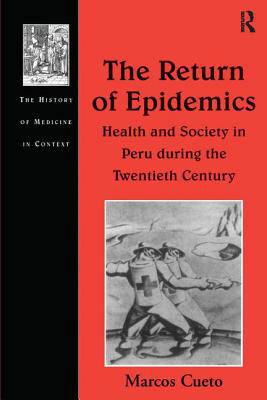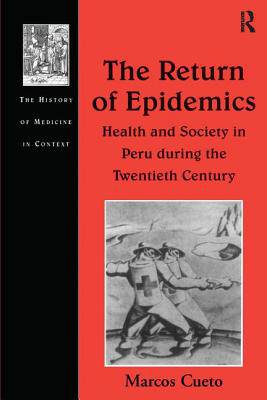
- Afhalen na 1 uur in een winkel met voorraad
- Gratis thuislevering in België vanaf € 30
- Ruim aanbod met 7 miljoen producten
- Afhalen na 1 uur in een winkel met voorraad
- Gratis thuislevering in België vanaf € 30
- Ruim aanbod met 7 miljoen producten
Zoeken
€ 195,95
+ 391 punten
Uitvoering
Omschrijving
Historians have long recognized epidemics to be a significant, though sometimes hidden, factor in the fortunes of societies and civilizations. The study of epidemics heightens our understanding of relationships between economic systems and living conditions. It illuminates the ideologies and religious beliefs of the affected community and illustrates the efforts and inadequacies of public health systems. This investigation of the history of epidemics in various parts of Peru during the twentieth century opens up a new field for Latin American studies to include health and disease. These are important areas of the past that enable us to understand better the living conditions of people, the role of state authority and the dynamics of social movement. Marcos Cueto examines five series of epidemics: the bubonic plague of 1903-1930; the fever epidemic of 1919-1922; the typhus and small pox epidemics in the Andes; attempts to control and eradicate malaria, and the cholera epidemics of 1991. In each case he studies the biological and ecological factors that caused the outbreak, and the techniques and policies applied to fight it, together with the response of the affected society. The experience of epidemics in Peru has been cyclical. Poverty breeds disease which in turn results in further poverty. One of the aims of this study is to highlight areas of success and failure in the fight against epidemics in the hope that such awareness may help break this vicious circle.
Specificaties
Betrokkenen
- Auteur(s):
- Uitgeverij:
Inhoud
- Aantal bladzijden:
- 186
- Taal:
- Engels
- Reeks:
Eigenschappen
- Productcode (EAN):
- 9780754603146
- Verschijningsdatum:
- 20/04/2001
- Uitvoering:
- Hardcover
- Formaat:
- Genaaid
- Afmetingen:
- 156 mm x 233 mm
- Gewicht:
- 499 g

Alleen bij Standaard Boekhandel
+ 391 punten op je klantenkaart van Standaard Boekhandel
Beoordelingen
We publiceren alleen reviews die voldoen aan de voorwaarden voor reviews. Bekijk onze voorwaarden voor reviews.











